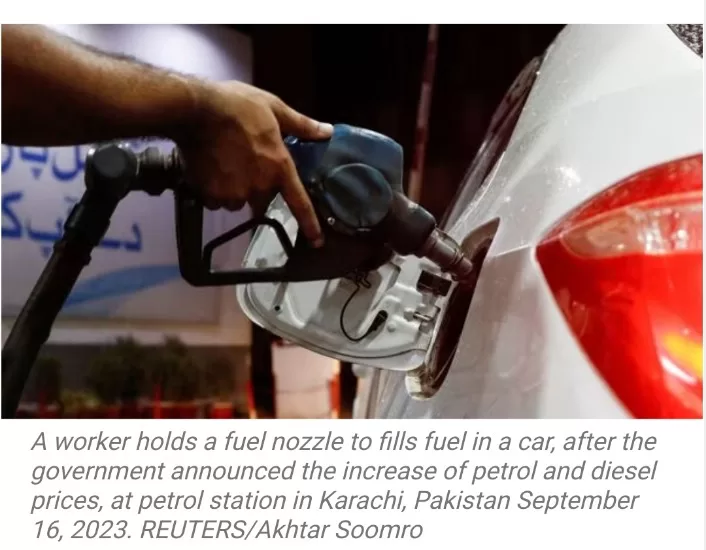Islamabad- Pakistan’s interim government has delivered another blow to the nation’s populace by announcing a significant increase in the prices of petrol and diesel, pushing petrol prices to an unprecedented high of over ₹330 per litre. This announcement, made on September 16, adds further strain to an already burdensome economic climate in Pakistan.
Following approval from interim Prime Minister Anwaarul Haq Kakar, the Ministry of Finance revealed that petrol prices would surge by ₹26.02 per litre, while diesel prices would see an increase of ₹17.34 per litre. This move, which comes after a previous hike on September 1, has now led to petrol and high-speed diesel (HSD) prices exceeding ₹330 per litre at fuel stations. It is a symbolic threshold that the nation has crossed for the first time in its history, as reported by The Dawn.
The surge in fuel prices places an immense burden on the citizens of Pakistan, coinciding with a staggering 27.4 percent rise in the inflation rate in August. Both private and public service vehicles rely on petrol and HSD, making the price hikes particularly impactful.
The Ministry of Finance attributed these price adjustments to the escalating international petroleum rates, underscoring the need to realign domestic fuel prices accordingly.
Notably, this hike comes on the heels of an earlier increase of over ₹14 in petrol and diesel prices implemented by the interim government on September 1. Since August 15, the cumulative rise in petrol and HSD prices now stands at ₹32.41 and ₹38.49 per litre, respectively, resulting in an overall increase of ₹58.43 and ₹55.83 per litre within a mere month.
Moreover, petrol and diesel have become 20 percent more expensive since the caretaker government assumed office in August. Although no Goods and Services Tax (GST) is levied on petroleum products, the government imposes a ₹60 per litre petroleum development levy (PDL) on petrol and ₹50 on HSD, as part of its commitment to the International Monetary Fund (IMF).
In an effort to stabilize the country’s struggling economy, Pakistan entered into a $3 billion bailout program with the IMF for nine months. In July, the IMF disbursed $1.2 billion to Pakistan to support these financial stabilization efforts.
For years, Pakistan has grappled with economic instability, leading to unchecked inflation and immense pressure on its citizens, particularly those in vulnerable economic circumstances.







